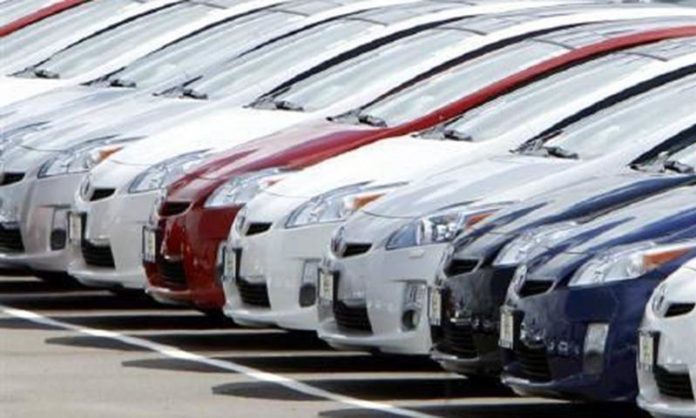ISLAMABAD: Despite various attempts by the government, car manufacturing companies have failed to end the menace of ‘on money’, an illegal selling fee practised by car dealers in the country. The manufacturers/assemblers of new cars have now reiterated their demand to impose an additional tax on the transfer of a new car within a stipulated time.
During a recently held media briefing, CEO Indus Motors Company (IMC) Ali Asghar Jamali said that his company has so far cancelled advance booking orders of over 1900 cars made by dodgy corporate and habitual investors to discourage the premium or ‘on money’ for quicker delivery of vehicles. Still, the illegal practice of premiums, a common practice of a premium charge or extra money demanded from a consumer for an early automobile delivery, continues in the country to this day.
“This is why we have suggested that the government introduce a tax on the first transfer of a vehicle, which will discourage the illegal practice of on money,” COE IMC said, adding that the company has already launched a campaign against the charging of premiums and multiple bookings on a single National Identity Card.
According to him, by cancelling large numbers of bookings, IMC has hurt genuine customers, but the decision has been taken for the general public at large. Demands of early delivery from the customers encourage investors to exploit them by offering vehicles on premium payments. If a customer agrees to secure delivery as per the schedule no premium will exist.
To a question, he said, those dealers who were found to be involved in illegal practices, were either banned or fined heavily. He stressed for customers to order vehicles from authorised 3S Toyota dealerships and avoid paying premiums.
According to sources, the government had agreed to introduce the tax on the first sale of vehicle equal to what the premium is being charged. However, later, the government also asked the assemblers to manage a collection of the said tax.
Customers usually blame auto manufacturing companies for allowing the premium, suggesting that the auto manufacturers should develop a faster way to deliver cars so that this malicious practice would end in the country. As long as the huge gap in demand and supply exists, the illegal practice of ‘on money’ will continue. Unlike other countries, the assemblers of cars in Pakistan have failed to meet market demands forcing the customers to wait for months for a new car.
Currently Rs150,000 to Rs250, 000 is being charged by dealers as ‘on money’ for sale of new cars. This additional sum which they have earned is excluded from the profit margin which the automobile manufacturers have given to the black marketers (dealers).
In a recently issued notice by the company, IMC extensively examined the Provisional Booking Orders, verified the information, and cancelled those bookings which were found to be of individuals who were aiming to sell the cars for premium or ‘on’. These individuals will be refunded their total amount. Toyota earlier had cancelled more than 1300 booked cars in November 2017. Through a notice, the company announced that if there was any error in judgment, the individual can contact the firm before 29 March 2018, to keep the order valid which will be delivered at the scheduled time.
It is expected that the introduction of new entrants in the auto sector under the government’s new auto policy 2016-21 would help in eradicating ‘on money’ practice as it may fulfil the demands of local consumers and start a more healthy competition between automobile manufacturers. However, if local dealers sell vehicles from those new entrants with the same process and charge additional (illegal) premiums, without any check from the government, then this unfair practice will keep going on where customers will be made to pay extra amounts, and the government will fail to capitalise on collectable tax.




